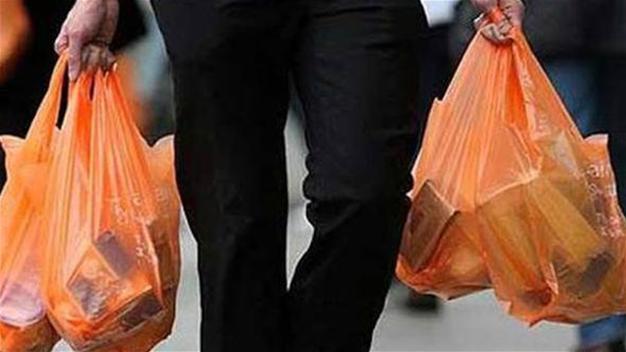Restrictions on plastic bags in Turkey due by 2018
ISTANBUL

The use of plastic bags in markets and stores will be restricted across Turkey starting in 2018, the Turkish Retailers’ Federation (TPF) announced on March 28, state-run Anadolu Agency has reported.
TPF head Mustafa Altunbilek said the decision was made in an effort to reduce waste, adding that they were planning to motivate customers to use cloth or other non-plastic bags.
Such regulations have already been implemented in Europe and the United States, Altunbilek said, adding that plastic bags would only be sold for a fee starting Jan. 1, 2018.
The TPF head said they would launch efforts to inform people about the drawbacks of using plastic bags, adding that they would make cloth and net bags more convenient for local markets.
“We will motivate customers to use net and cloth bags while shopping. We will give paper and cloth bags to customers during the transition process. In Europe, customers bring these bags along with them due to the ban on using plastic bags,” he said.
Meanwhile, bag producers in Turkey are expected to take action following the announcement of the coming ban, with some firms moving to produce biodegradable bags.
Some experts remarked that the transition would not be easy, adding that some firms could go bankrupt, resulting in greater unemployment.
Some leading sector players said some plastic bag producers could redirect their production toward exports, daily Dünya reported, adding that other producers might also begin producing biodegradable bags for the domestic market.
A market consumes an average of 10 tons of plastic bags per month in Turkey; when extrapolated to the entire country, markets in the country are believed to consume a total of 250,000 tons of plastic bags per month.
Yavuz Eroğlu, the head of the Turkish Plastic Industrialists, Research and Development Association (PAGEV), said plastic bags were actually more environmentally friendly as they could be used over and over.
Collecting a fee from consumers for plastic bags would be a better idea than selling bags to buyers, Eroğlu said.
Eroğlu also took umbrage with the suggestion that a ban would be imposed against plastic bags, saying the changes were only limited to a regulation to sell plastic bags for a fee.
Eroğlu said they have long been pursuing efforts to produce biodegradable bags with the support of Scientific and Technical Research Council of Turkey (TÜBİTAK) and Turkish Union of Chambers and Commodities Exchanges (TOBB).
Vedat Kılıç, the chair of the Assessable Waste Material Industrialist Association (TÜ-DAM), welcomed the decision, adding that providing plastic bags for free was resulting in a waste of resources and the creation of more garbage.
“The situation must be explained clearly to customers to prevent anger among customers. Attention should be drawn to the issue with public service ads. Otherwise, customers will say, ‘Why are we paying for plastic bags which have been free for years?’” he said.
 The use of plastic bags in markets and stores will be restricted across Turkey starting in 2018, the Turkish Retailers’ Federation (TPF) announced on March 28, state-run Anadolu Agency has reported.
The use of plastic bags in markets and stores will be restricted across Turkey starting in 2018, the Turkish Retailers’ Federation (TPF) announced on March 28, state-run Anadolu Agency has reported.